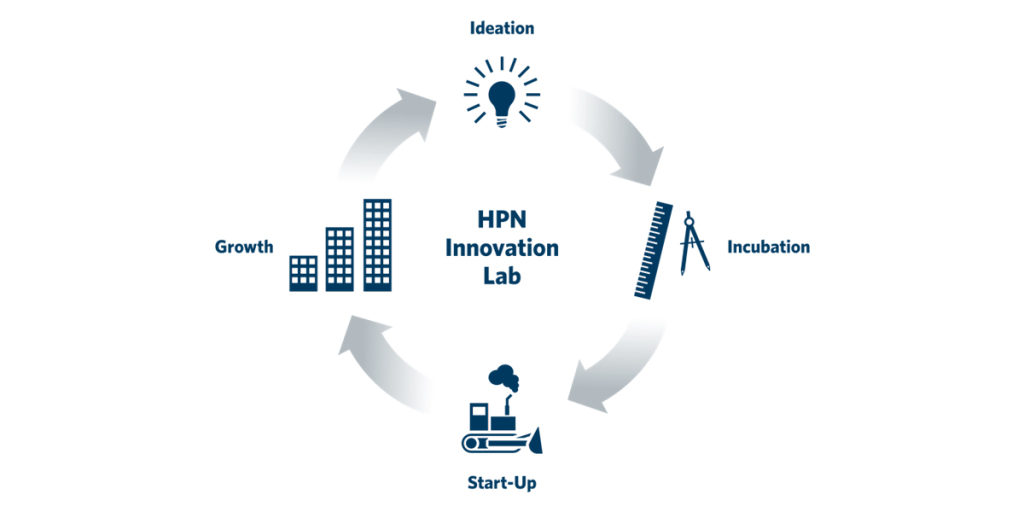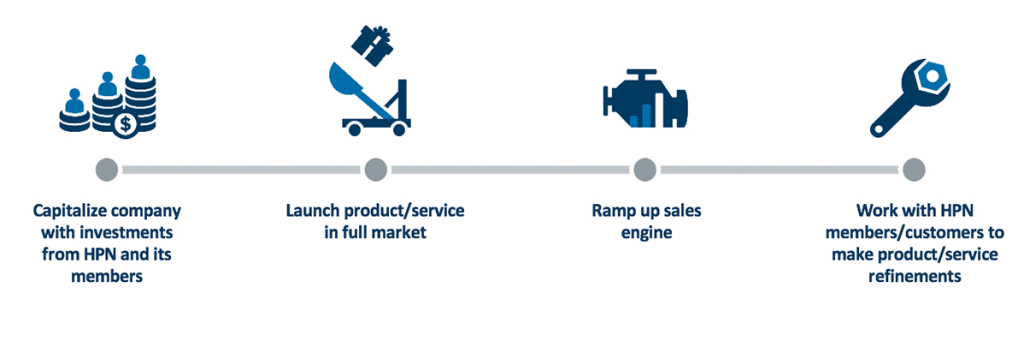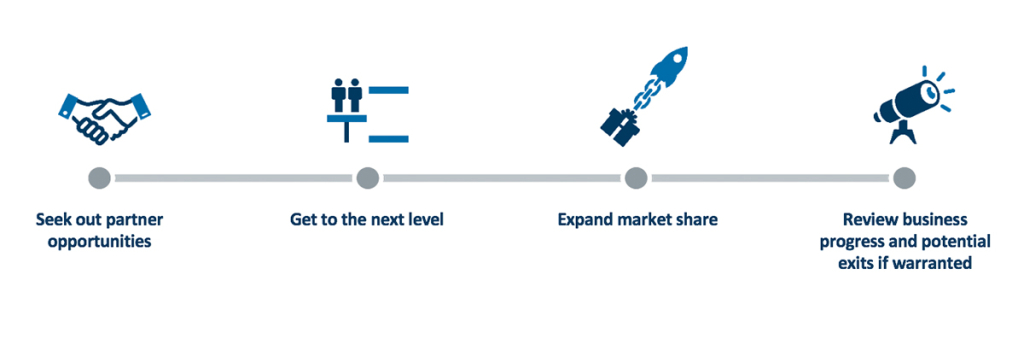Our Innovation Framework
Our innovation work launches and builds social enterprises that increase members’ capacities to fulfill their missions. Ideas for new enterprises are generated by Housing Partnership Network members who work together to co-create solutions to barriers in the market that limit their growth and impact.
Once co-designed through the best practices and expertise of members, HPN provides the engine behind the idea to ensure members can innovate in ways that directly solve major challenges. HPN then incubates the new business which must be both mission critical and financially sustainable.

Our business formation cycle is comprised of four stages
Exploration Stage
All businesses start with the germ of an idea. It is through HPN's peer exchange that opportunities for social enterprises arise.
The HPN exploration stage cultivates the collective wisdom of the nation’s premier community developers through peer exchange, executive roundtables, working groups, and evolving discussions that are designed to uncover opportunities unique to the community development and affordable housing sectors.
The focus is put on solving a problem, addressing a challenge or a specific 'pain point' that our members have identified that is creating an obstacle to them fulfilling their mission.

Incubation
The HPN incubation process is designed to further test credible ideas and determine the level of commitment from the HPN member community. In this phase, members typically provide seed capital and take a more active role in developing the concept. Having skin in the game is a core requirement to ensure we keep the focus of the organization and its senior leadership.
Typically, an outside resource with specific domain experience will be commissioned to research the viability of the idea more deeply to uncover any hidden issues or roadblocks, unearth market conditions and data, and reduce the risks associated with a full launch. As the conclusion of the incubation process, the case to launch or shut down the business concept is considered.
For a concept to gain approval, we look for the new entity to demonstrate value to society at large and HPN members, and also provide compensation to HPN as the sponsor of the concept. This model allows HPN to progress toward self-sufficiency through equity ownership and revenue related to the specialized business services it delivers to the entity.

Business Development
If an incubated idea is approved to move forward, the HPN Start-Up phase begins. This stage involves finalizing the business plan, capitalizing the new company, determining governance, recruiting staff and launching the entity.
At the core of all these activities are the non-profit social enterprise members of the HPN network and their expertise provides guidance in business design, governance, capitalization and product development and delivery. The members are the customers; their robust delivery and deployment system is critical to the success of these aggregation based business models.
Once this stage is reached, the HPN senior management team is mobilized and key staff members with expertise in standing up and launching early-stage enterprises are engaged. Recruitment of key personnel and the appropriate external resources is coordinated by the HPN start-up team.

Growth
The growth phase must consist of building the young enterprise with urgency so competitive advantage can be achieved rapidly.
All HPN sponsored businesses are expected to reach specific mission and financial goals and objectives that are established in the business plan and these targets are carefully considered and monitored so that strategic decisions can be made in a timely way.
We consider varying factors to be important, from measuring social impact, expanding capitalization and considering the appropriate long term relationship with HPN to working with strategic partners, spinning the entity out to become independent and looking at exit opportunities, if warranted.

